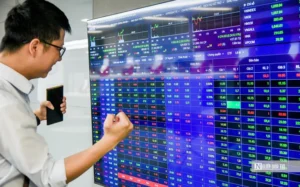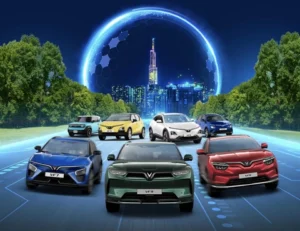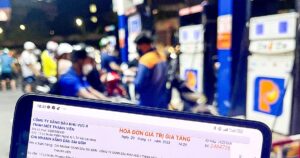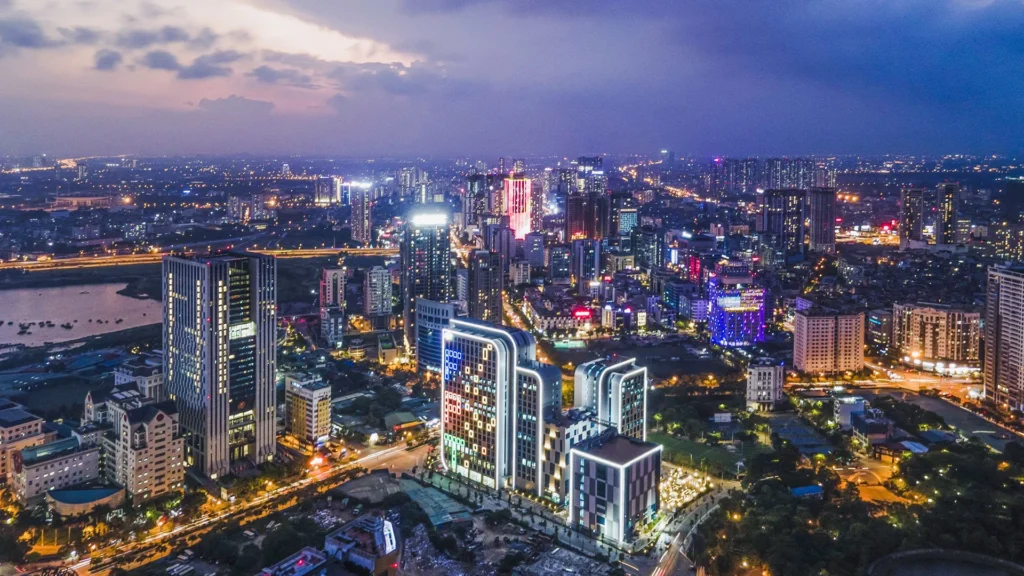To achieve high-income status by 2045, Vietnam’s annual growth rate must increase to 5.4%, requiring productivity gains and industrial improvements. Vietnam’s economy needs to shift from “input”-led growth to innovation-led growth, emphasizing human capital, labor and capital market efficiency, competition, and technology adoption…
On October 24 and 25, in Da Nang, the Economic Research Institute for ASEAN and East Asia (ERIA) and the University of East Asia co-organized the international scientific conference “Vietnam’s Challenges: Towards a High-Income Country by 2045”.
Attending the workshop were Deputy Head of the Central Economic Commission, Associate Professor, Dr. Nguyen Hong Son; leaders of the People’s Committee of Da Nang City, the Consulate General of Japan in Da Nang, representatives of management agencies of Vietnam and Japan, and nearly 200 experts and scientists from universities, research institutes… in Vietnam, Japan and countries in the region.
According to Professor Tetsuya Watanabe, President of the Economic Research Institute for ASEAN and East Asia (ERIA), in order to support Vietnam in “Moving towards becoming a high-income country by 2045” according to the goal of the 13th National Congress of the Communist Party of Vietnam; with the advice of the Japanese Ambassador at that time (in 2021), ERIA spent two years cooperating with 30 experts from many countries in Japan and Vietnam to compile a report entitled “Vietnam 2045: Issues and challenges for development”.
The main content of the report includes 21 chapters, about 600 pages. The structure of the report has 4 parts: Historical issues and development model of Vietnam; Industries promoting growth towards 2045; Sustainability and social issues; Conclusion and policy recommendations.
MANY PERSPECTIVES ON VIETNAM’S ECONOMY
Speaking at the workshop, Ms. Nguyen Thi Anh Thi, Vice Chairwoman of the People’s Committee of Da Nang City, commented that the academic contributions and policy advice from research agencies, especially the report ” Vietnam 2045 – Issues and challenges for development ” by the Economic Research Institute for ASEAN and East Asia (ERIA), have played, are playing and will continue to play an important role in orienting Vietnam’s development strategy.
At the workshop, Vice Chairwoman of the Da Nang People’s Committee Nguyen Thi Anh Thi said that in the development orientation of Da Nang city to 2030, with a vision to 2045, the city will focus on developing three main economic pillars: tourism, high-tech industry and marine economy. Da Nang is also implementing solutions to develop smart, creative and sustainable urban areas to become an important socio-economic center of the Central region and the whole country.
Da Nang also recognizes and appreciates the important contributions of Dong A University to the socio-economic development of Da Nang city. The university’s efforts in training high-quality human resources, especially in key areas for the sustainable development of the city and its role as a strategic partner in international cooperation activities and policy consulting, have contributed to helping Da Nang improve its competitiveness and international integration.
During the 2-day conference, there were 04 discussion sessions and 01 forum, with 14 thematic reports providing in-depth perspectives on Vietnam’s economy.
The opening session focused on the development direction with the following presentations: Vietnam – A model to pursue in balanced development; Issues of changing the growth model: Policies to avoid the middle-income trap; The new wave of Digital Transformation (DX), Industrial Revolution 4.0 (4IR), Internet of Things (IOT) and Artificial Intelligence (AI) as driving forces for Vietnam.
The following sessions include discussions on the impact of the external environment, the driving force for industrial development and new issues related to Vietnam’s development goals until 2045 such as: Autonomy and strategic adaptation policies for Vietnam’s development in the new era; How to deal with geopolitical tensions? From the perspective of Vietnam and ASEAN; Increased uncertainty and FDI adjustment – impact on Vietnam; FDI and technology transfer to Vietnamese enterprises; Climate change and sustainable economic growth in Vietnam; Transition to a circular economy in Vietnam; Energy supply and green economy in Vietnam;…
TOWARDS HIGH-INCOME COUNTRIES
In-depth discussions that experts and scientists are interested in include: “ Vietnam model: direction for balanced development ” by Dr. Vo Tri Thanh, Chairman of the Vietnam Pacific Economic Cooperation Committee, former Deputy Director of the Central Institute for Economic Management, reflecting Vietnam’s transition from a planned economy to a socialist-oriented market economy.
The paper highlights the important reforms since the implementation of the Doi Moi policy; analyzes the changing circumstances that Vietnam is currently facing and the challenges that the country needs to overcome to move forward. At the same time, the study also explores the concept of the Vietnamese model of a socialist-oriented market economy, recognizing the role of fair competition and the central role of the state economy…
Citing data that Vietnam entered the lower middle-income group in 2008, with a per capita national income (GNI) of 3,560 USD in 2021, the paper “On the issue of changing the growth model: Policies to avoid the middle-income trap” by Professor Tran Van Tho, Professor Emeritus of Waseda University, Japan, emphasized the importance of shifting from “input”-based growth to total factor productivity (TFP)-based growth and the role of institutional reform in maintaining growth.
According to Professor Tran Van Tho, to escape the middle-income trap and achieve long-term growth, Vietnam needs to focus on policies to promote industrialization, support small and medium-sized enterprises (SMEs), improve factor markets, enhance education and training, and invest in research and development (R&D).

Speaking at the 4th session on the morning of October 25, Associate Professor, Dr. Nguyen Hong Son, Deputy Head of the Central Economic Commission, shared that in the context of rapid, strong and unpredictable changes in the international and regional context under the impact of strategic competition between major countries, the Fourth Industrial Revolution; non-traditional security issues such as climate change, natural disasters, epidemics; increasingly deep and wide international and regional integration, digital transformation associated with green transformation is a revolution in developing new productive forces. This transformation is affirmed by the Communist Party of Vietnam as a new breakthrough method to shorten the industrialization and modernization process; contributing to helping Vietnam achieve a high average income.
Associate Professor, Dr. Nguyen Hong Son raised a number of issues for experts and scientists to discuss at the Workshop or continue research after the Workshop to clarify solutions to help Vietnam grow faster and more sustainably, averaging 5.98% in the 2011-2023 period and increasing in the context of many difficulties and challenges.
According to Associate Professor, Dr. Nguyen Hong Son, to achieve the target of high average income (7.5-8.0%/year in the period 2026-2030), scientists focused on discussing and clarifying how to achieve high growth while still ensuring social and environmental goals?…
Prof. Yasuhiro Yamada (Japan), senior policy fellow at ERIA, said: Vietnam has maintained a high economic growth rate since the early 1990s thanks to economic reforms and openness to the world. Annual growth in real national income (GNI) per capita is around 5.0% (1995-2019), much higher than that of developed economies.
To achieve high-income status by 2045, Vietnam’s annual growth rate must increase to 5.4%, requiring productivity gains and industrial improvements. Vietnam’s economy needs to shift from “input”-led growth to innovation-led growth, emphasizing human capital, labor and capital market efficiency, competition, and technology adoption.
“Digital technology plays a key role in this transformation,” emphasized Prof. Yasuhiro Yamada. “Key industries such as electronics, advanced agriculture, textiles, digital transformation (DX)-related sectors, automotive, healthcare, and energy are expected to contribute to economic growth and the circular economy.”
According to Prof. Yasuhiro Yamada, cooperation with Japan, especially in the field of digital transformation (DX), offers significant potential to move closer to the goal of achieving high-income country status by 2045. In addition, cooperation initiatives should be pursued in a variety of areas, including the automotive industry, advanced agriculture, climate change mitigation, the circular economy, and addressing the challenges of aging societies, etc.
















